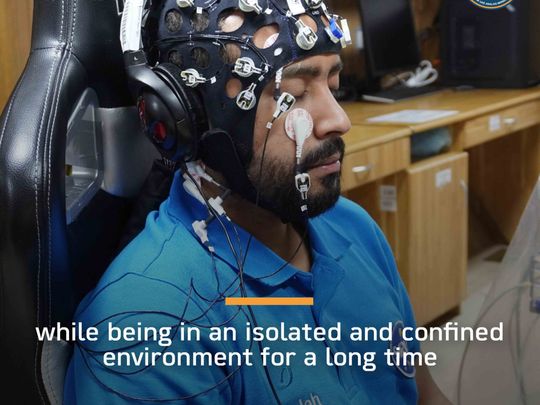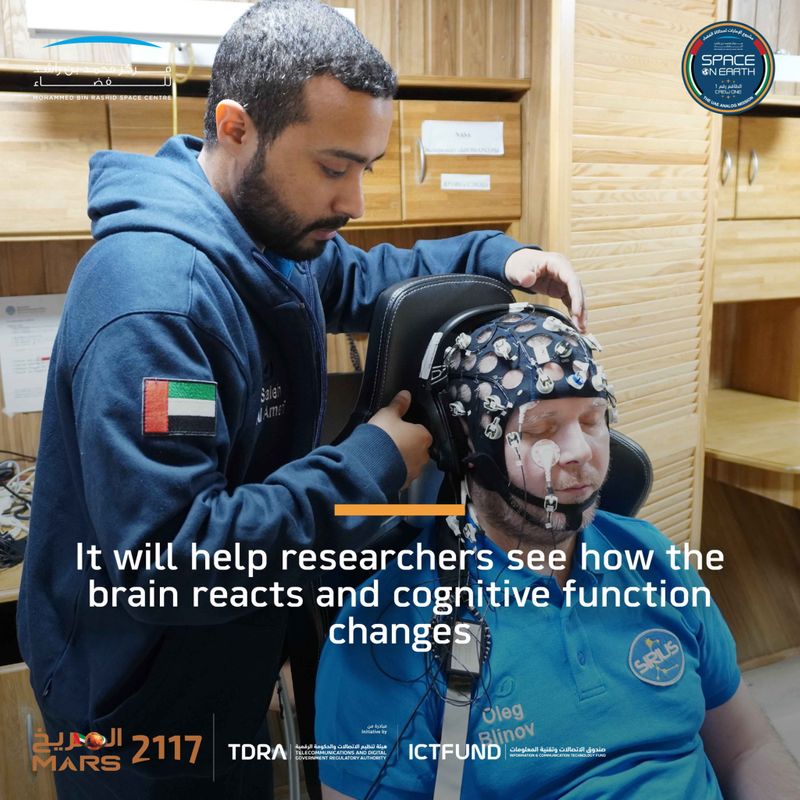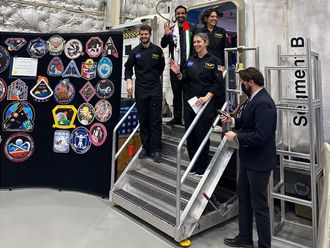
Dubai: As part of his mission in Russia, UAE analogue astronaut Saleh AlAmeri conducted the electroencephalogram (EEG) experiment to help researchers see how the brain reacts and track cognitive function changes while being in an isolated and confined environment for a long time.
The Mohammed bin Rashid Space Centre (MBRSC) tweeted photos of AlAmeri — with electrodes attached to his head — undergoing EEG experiment, as part of the Scientific International Research in the Unique Terrestrial Station (SIRIUS-21) crew.
An EEG is a test that detects abnormalities in brain waves or the electrical activity of the brain. It is also used to monitor blood flow in the brain.
MBRSC said: “The goal of EEG is to obtain functional state parameters of the brain during the isolation stage. It will help researchers see how the brain reacts and cognitive function changes while being in an isolated and confined environment for a long time.”

Replicating challenges of space flights
AlAmeri has been in isolation since he became part of SIRIUS-21 crew back in November last year. He entered the NEK ground-based analogue facility in Moscow, Russia, for an eight-month project in near-isolation to replicate the challenges of space flights to the Moon and Mars.
Analogue astronauts simulate long-duration space missions, in geographically similar areas to the real missions that are being planned for future Moon and Mars explorations. They are tasked to conduct more than 70 experiments during the mission, including simulated space flights to a hypothetical planet, landing of an expedition module for conducting scientific research, staying in the orbit to perform operations for receiving transport ships, remote control of robotic vehicles for building a base and simulated return space flights to Earth.
Mars colony
The UAE’s participation in the SIRIUS mission is an integral part in developing Emirati capabilities and contributing to the development of the Mars 2117 Programme, aimed at establishing human colonies in Mars by 2117.










